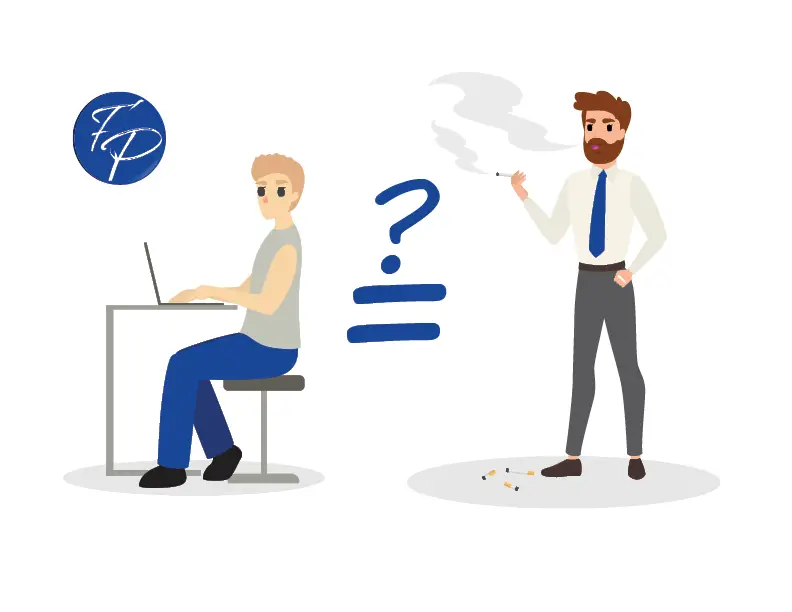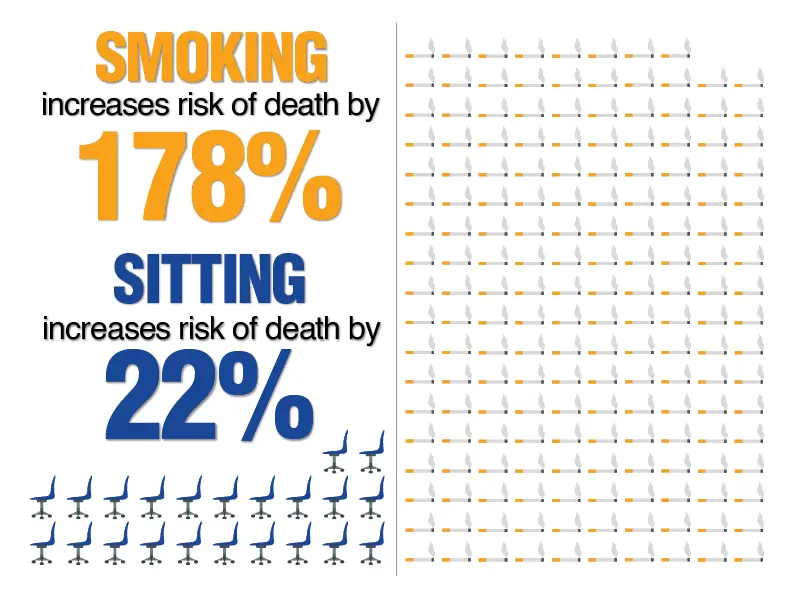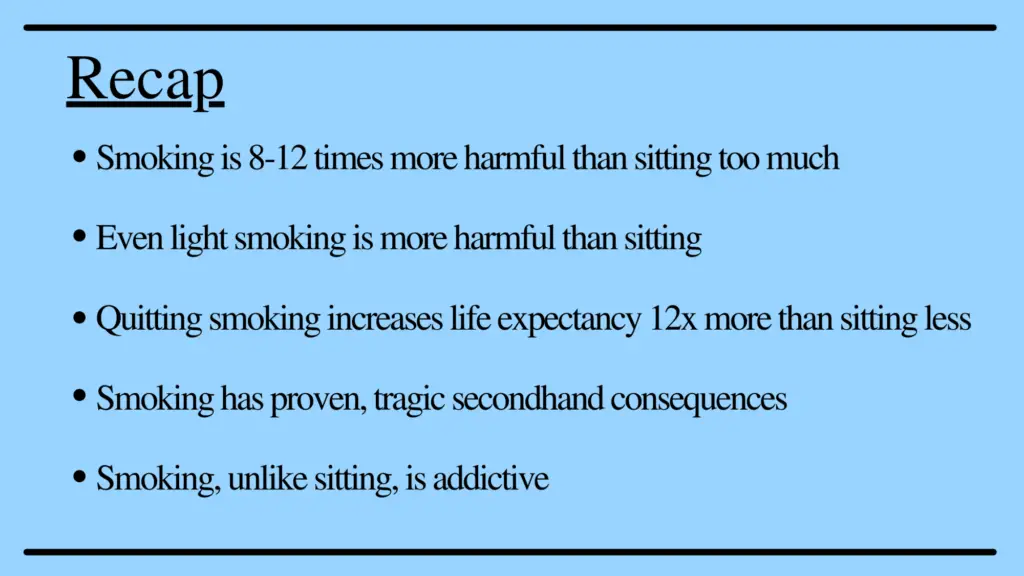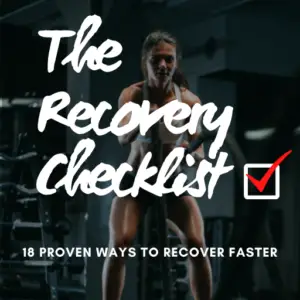Ever heard that “sitting is the new smoking”?
We know smoking is horrible for our health. Some people claim sitting is just as harmful.

This narrative gained popularity and sold a lot of standup desks in the past decade. It’s a terrifying comparison, considering how much sitting we do.
This shocking claim demands scientific scrutiny. Fortunately, a group of PhD scientists dove deep into the research to answer the question–is sitting the new smoking?
Here’s what they found (1):
1) Smoking is Riskier than Sitting
The health risks of smoking are higher than the risks of sitting a lot. For smokers, the risk of death is 178% higher than for non-smokers.
Sedentary behavior is unhealthy. But it’s not as detrimental as smoking. The risk of death due to sitting too much is 22% higher than for active individuals.

2) Light Smoking is Worse than Sitting
Sitting more than 8 hours/day causes negative health consequences. But it’s far healthier than any amount of smoking.
Smoking just 1 to 4 cigarettes/day is worse than sitting. The risk of death associated with light smoking is 3-4x higher than for sedentary behavior (1,2).
As you might expect, heavy smokers (over 40 cigarettes/day) fare worse. They’re 10.5x more likely to die early than the worst couch potatoes.
It’s puzzling, the comparison between sitting and smoking.
It’s like comparing your odds of being injured by a toilet this year (1 in 10,000) to your odds of dying while motorcycle racing (1 in 1,000). One is obviously more dangerous than the other.

The harms of smoking vs. sitting are not alike.
3) Quitting Smoking Helps More than Sitting Less
Do you live longer if you quit smoking?
How about if you sit less?
Sitting less than 3 hours/day increases life expectancy by 1 to 3 months. Not bad. Quitting smoking boosts life expectancy 12 to 35 months.
That’s 12x longer!
4) Smoking has Secondhand Effects
Secondhand smoke causes tragic health outcomes. About 2.5 million people died from secondhand smoke exposure from 1964 to 2014 in the United States alone. Secondhand smoke, even at low levels, increases the risk of stroke.

In contrast, sitting isn’t directly harmful to others. It doesn’t cause unavoidable health harms to those in the vicinity.
5) Sitting is Not Addictive
The nicotine in tobacco products is addictive. It makes smokers feel jittery and anxious if they haven’t smoked in a while. And it’s why quitting tobacco is so tough.
Sitting is a habit.
It doesn’t create chemical dependency or cause withdrawal symptoms when withheld.
Ever awoken from a good night’s sleep feeling anxious, restless, and irritable because you haven’t sat in 8 hours? Me either. (I just feel that way because I’m not a morning person.)
There you have it–5 reasons sitting is not the new smoking. Equating the two is a big mistake. Huge.

So if you work in an office, sit for school or travel a lot, don’t panic. Sitting won’t ruin your health.
Exercising 30-40 minutes per day offsets the risks of sitting, according to a recent study (3). Desk life is the norm for many of us, including lots of healthy, active people.
If you experience pain when sitting, check out 5 Ways to Sit with Less Pain
Looking to quit smoking? Check out the free resources here: How to Quit Using Tobacco
Readers: What’s your take on sitting vs. smoking? Are the dangers of sitting real? Or overhyped? Share your thoughts in the comments.
For more evidence-based insights you won’t find anywhere else, join the free, fast-growing Facts & Physio Newsletter. Plus, get The Recovery Checklist when you sign up.

